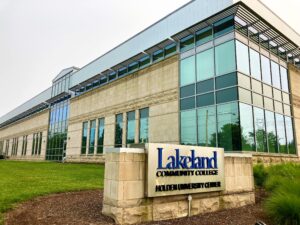Yesterday, the University of California Irvine announced that a UCI researcher received $3.6M to study the effectiveness of community college programs. The research will focus specifically on non-credit programs and gateway math courses.
In the press release, the principal investigator Dr. Di Xu, said something that caught my eye.
“The main goal of the non-credit sector seems to be the promise of economic returns for students seeking workforce training, yet we have limited knowledge of what those returns are, and next to nothing about specific program features that are associated with better student outcomes.”
Community colleges have gone hard and heavy on non-credit programs under the premise that they will make a person more marketable. That marketability will translate into higher-paying work. I am certain that the purveyors of fine, non-credit programs can share an enormous amount of anecdotal evidence to back up their claims. However, the hard data don’t support this, largely because the hard data don’t exist.
So, in the absence of supportive data, how is it that non-credit courses occupy so much time, space, effort, and resources at the community college? Should we be diverting resources from academic programs whose effectiveness we can quantify to non-credit and non-degree programs that may produce no benefit at all?
Worse, most institutions set up these non-credit, non-degree programs to compete with their credit-based offerings. Putting students in non-degree classes may, in fact, take students out of the community college’s regular classrooms. From a public policy standpoint, this runs counter to the State’s goal of getting more adults to a post-secondary education status of at least 60 credits in the next seven years.
View non-credit programs with caution
You can argue that there is a “need” for these non-credit courses. According to the American Association of Community Colleges, non-credit students comprise about 40% of community college enrollment in the US.
The non-credit programs I am referring to are not “personal enrichment” courses. They include professional development, software training (e.g., how to use Excel), and skill building. They sometimes offer “career training” in fields that don’t typically require college degrees. WCC’s selection of canned non-credit offerings can cost thousands of dollars. They’re entirely self-paced. They’re also self-financed since the federal government does not offer financial aid for non-credit courses.
But do they help students find or keep their jobs? Do they enable students to earn promotions or pay raises? And is it appropriate for a public institution to sell what might be a pig in a poke at premium prices to people who may be desperate for higher-paying work, when the same institutions also deliver a higher quality, lower-cost credential that’s recognized, vetted, and independently accredited?
Photo Credit: James Michael, via Flickr














